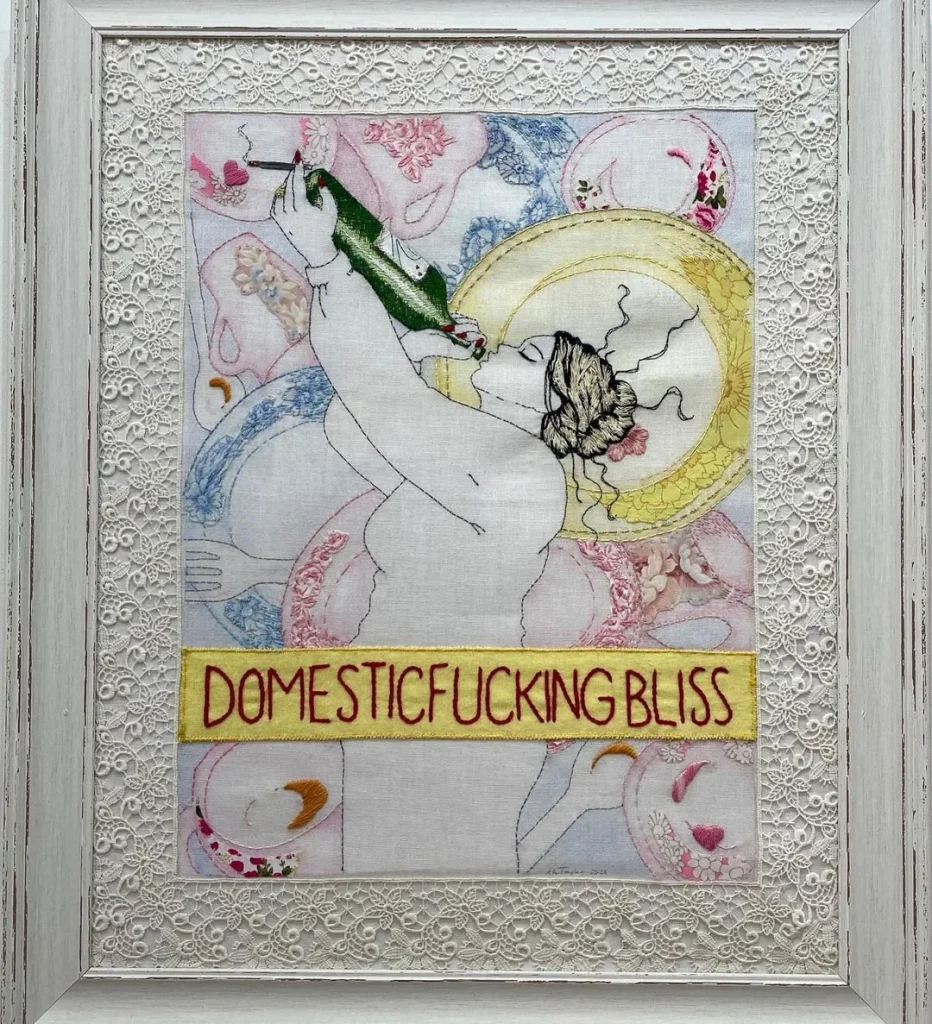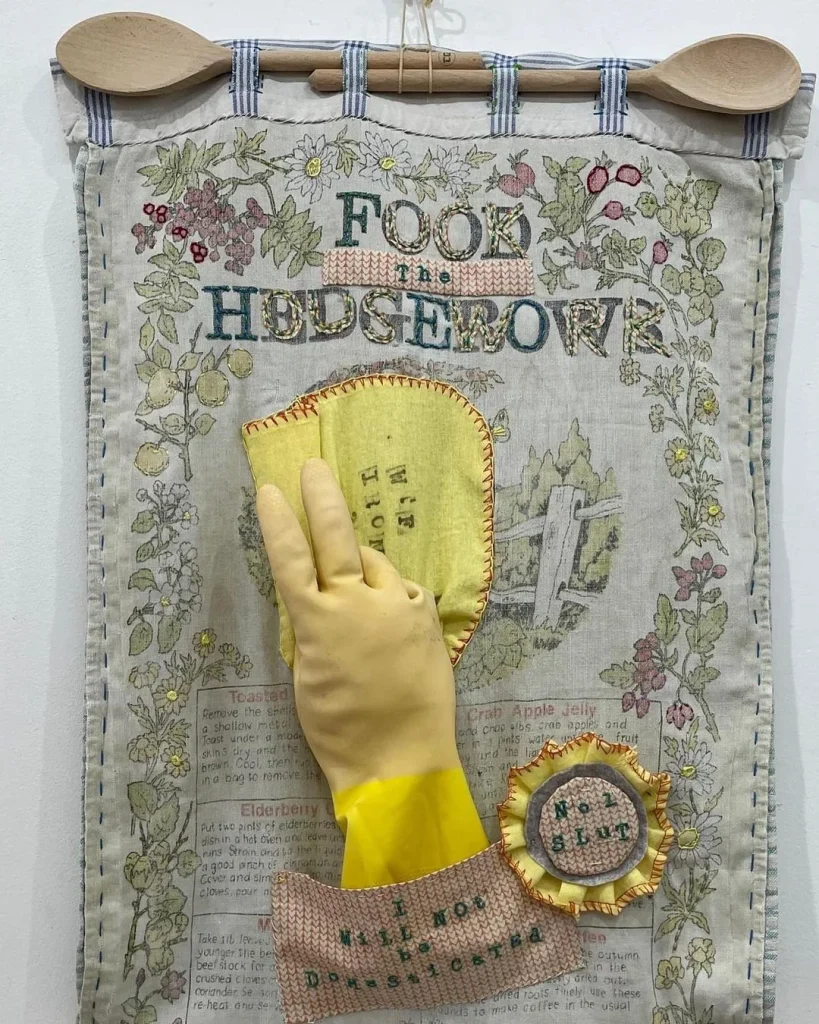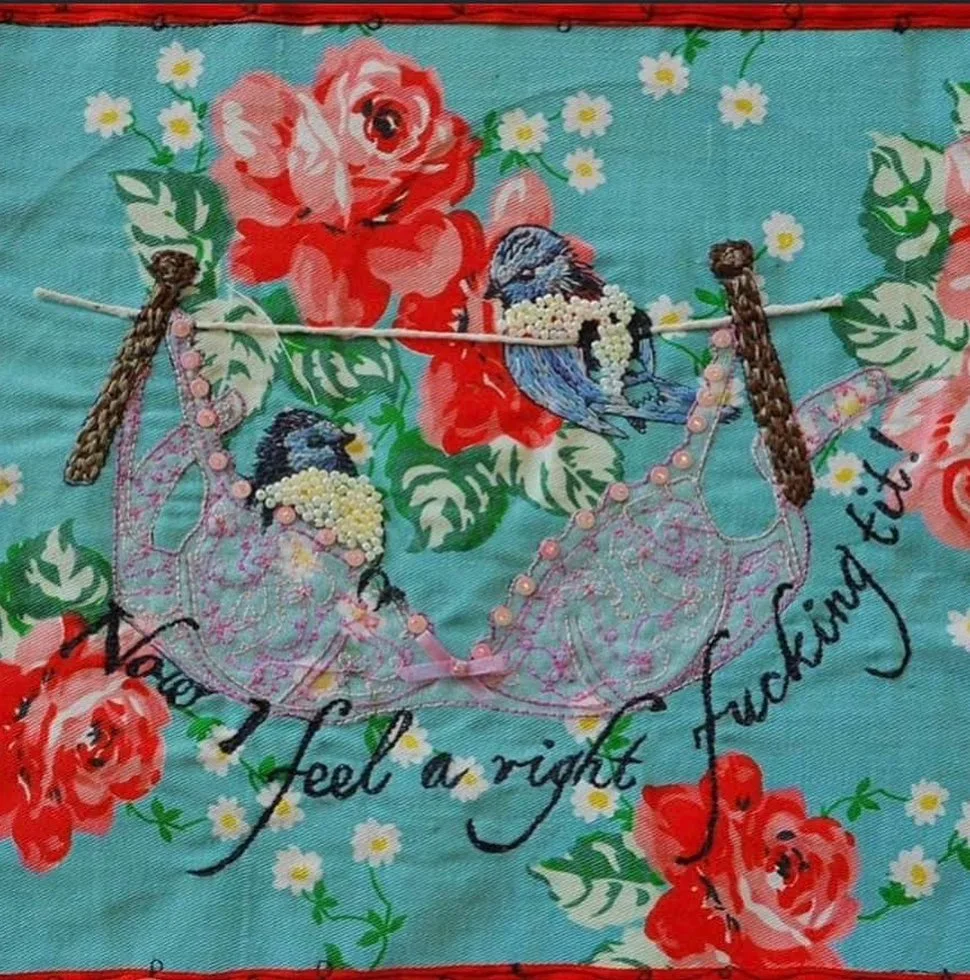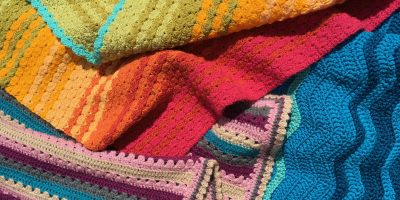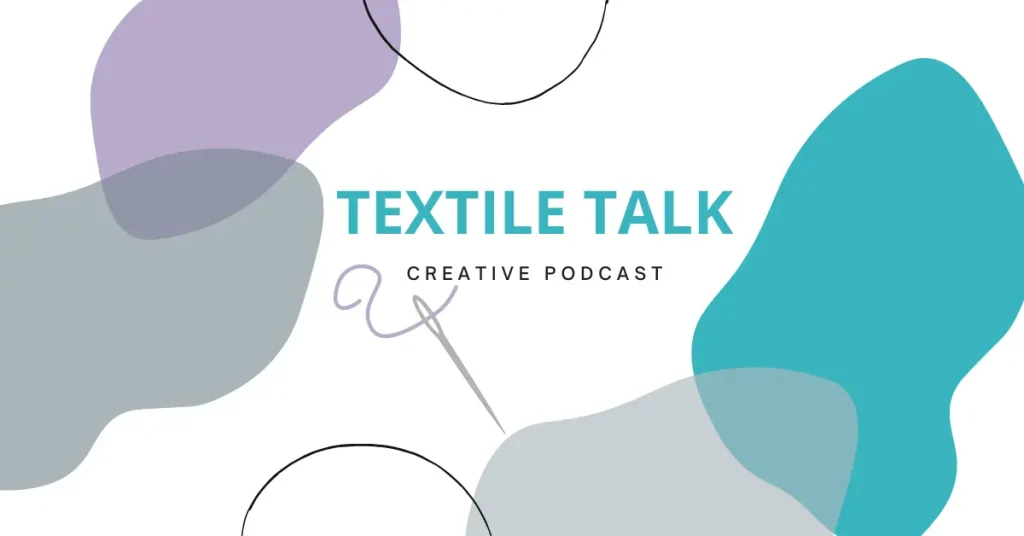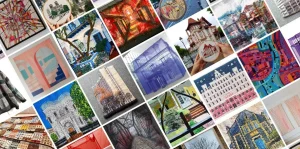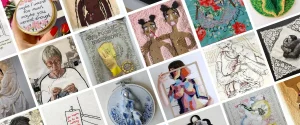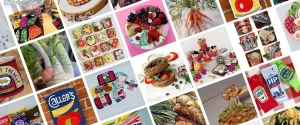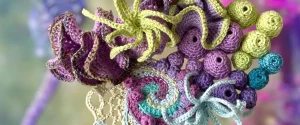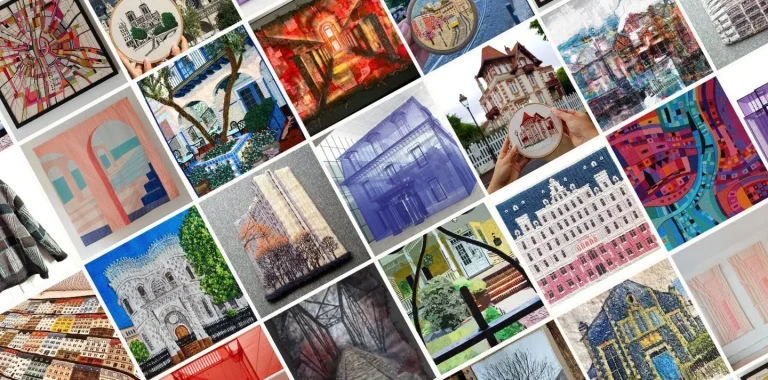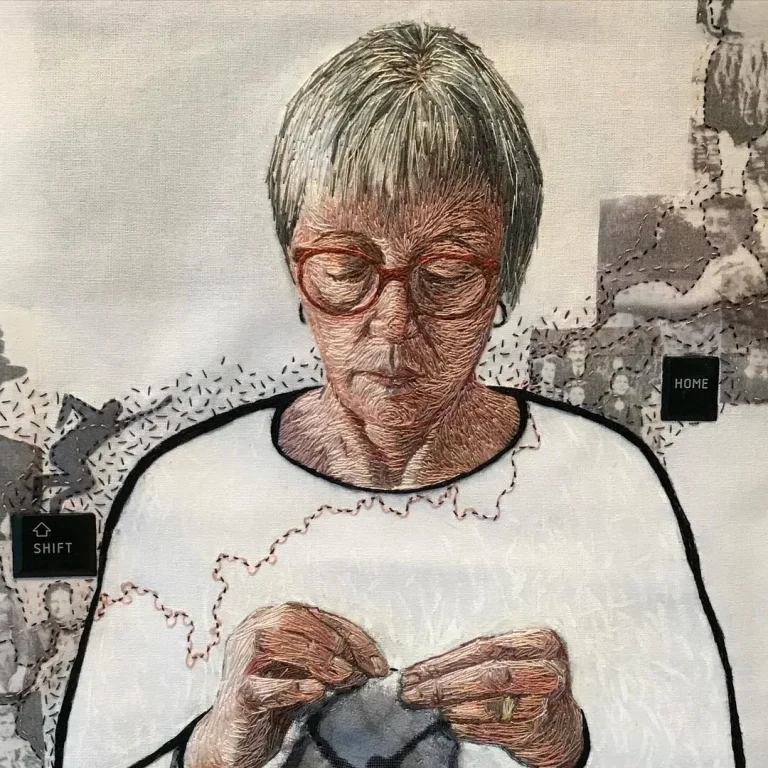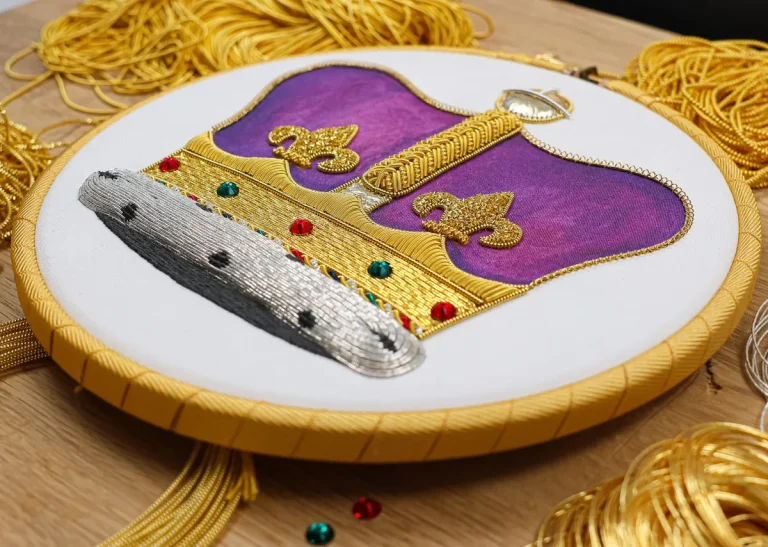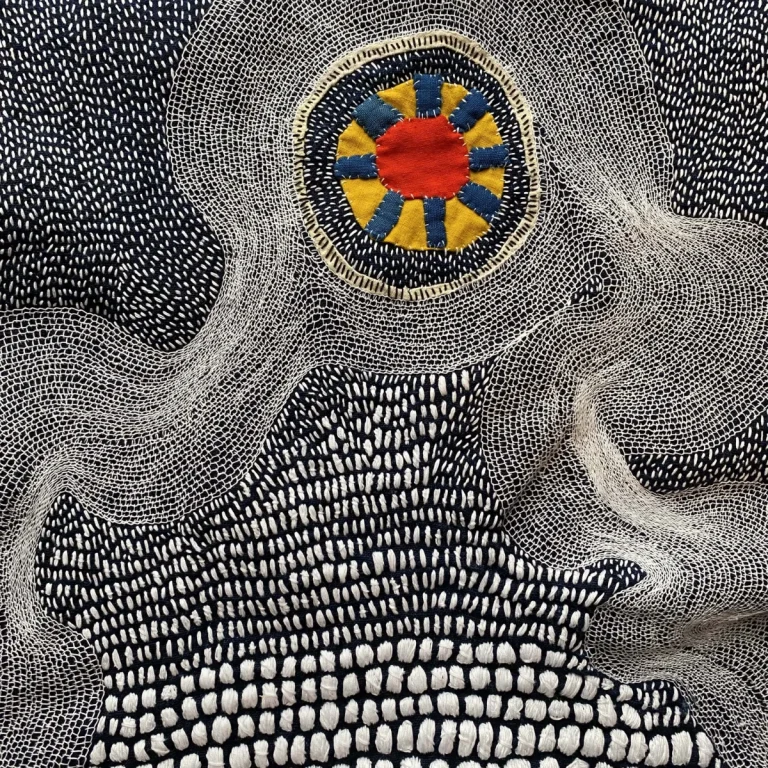During the Renaissance Textile Art was relegated from its ‘high arts’ status and embroidery was later banned from exhibitions by the Royal Academy. This influenced women to reject the medium in a bid to be taken seriously as artists. However, in recent decades women have cleverly reclaimed textiles and needlework crafts to do what art has always done: make us look deeply, feel intently and question what we thought we knew.
This international Women’s Day we’ve added to our Artists You HAVE to Follow Series by exploring the work from 7 contemporary textile artists inspired by women. Each celebrate women and the female form – the good, the bad and the ugly. The work you are about to see is not always pretty, dainty or decorative textile work. Instead, it’s gritty, innovative, vibrant and stunning artwork created to challenge gender stereotypes and highlight the glorious female expression.
Continue your International Women’s celebrations by taking a look at some of our previous posts. The Women that Made Space Inspired Textile Art Possible and Honouring Women in Textiles.
Before we start...
Don’t forget to check out our other blogs in the Artists you Have to Follow Series.
- 9 Textile Artists Inspired by Food
- 10 Textiles Artists Inspired by the Ocean
- Textile Artists Inspired by Nature
- 10 Textile Portrait Artists
- 10 Contemporary Felt Artists
- Machine Embroidery Artists You Have to Follow
- Hand Embroidery Artists You Have to Follow
- Inspiring Patchwork Quilt Artists You Have to Follow
- Inspiring Knit Artists You Have to Follow
7 Textile Artists Inspired by Women
1. Sophie King
Sophie King, otherwise known as King Sophie’s World, is a British contemporary embroidery artist. Sophie has been creating her consumable, unique designs since 2012 and has attracted global interest from personal and commercial clients.
Sophie has received commissions from Gwen Stafani, Teen Vogue, REfinery29 and Bumble and was featured in group exhibition “Cut Cloth: Contemporary Textiles and Feminism.
“Throughout my work, I aim to show how textiles, especially embroidery, can be used as a powerful medium that can communicate messages and stories about ourselves and the world around us.
My most recent embroideries draw upon my personal experiences as a woman in modern life. Exploring themes involving relationships, love, emotional well being and rebirth. I examine many of the problems women face in day to day life, presenting social-political commentary on such issues.”
We love her empowering mantras embroidered into feminine everyday items. Her designs remind us that – as women – we are enough and that gender doesn’t give anyone a right to be mean.
Follow Sophie King
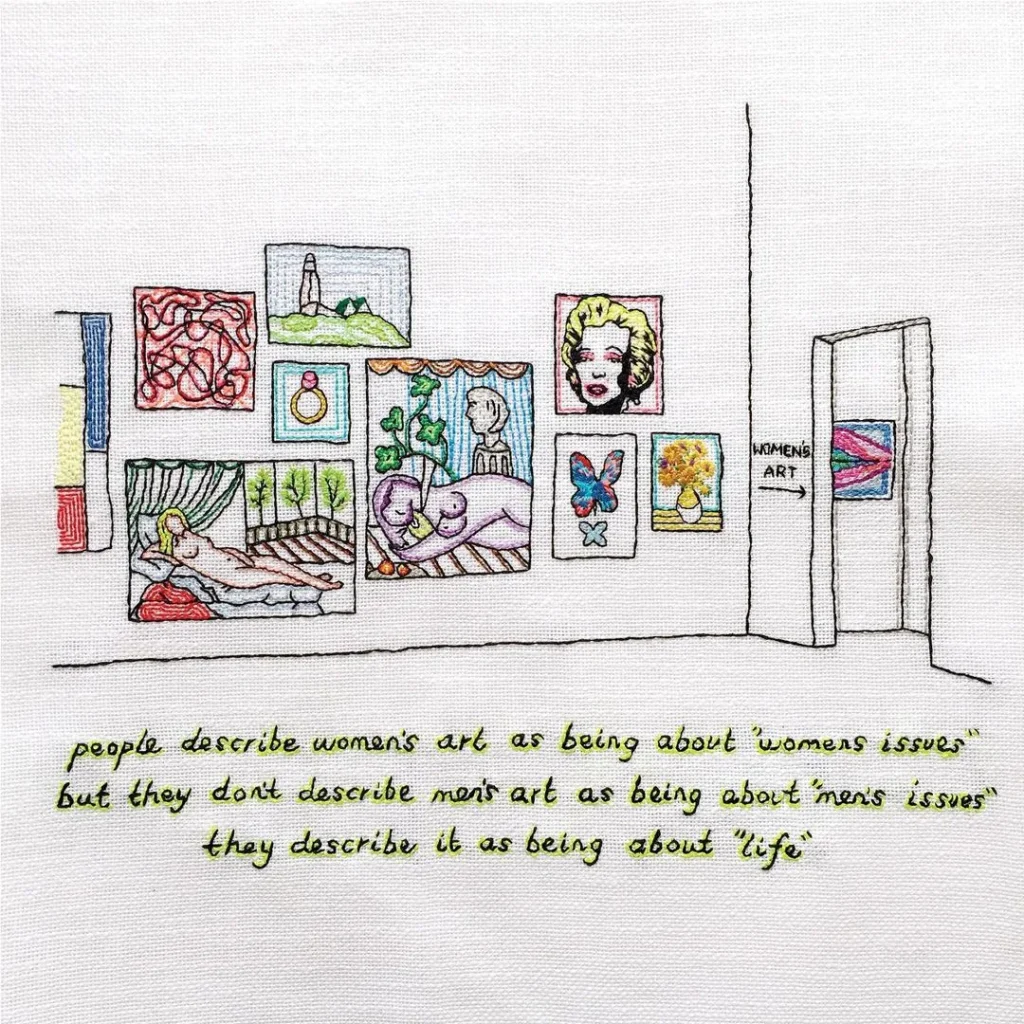
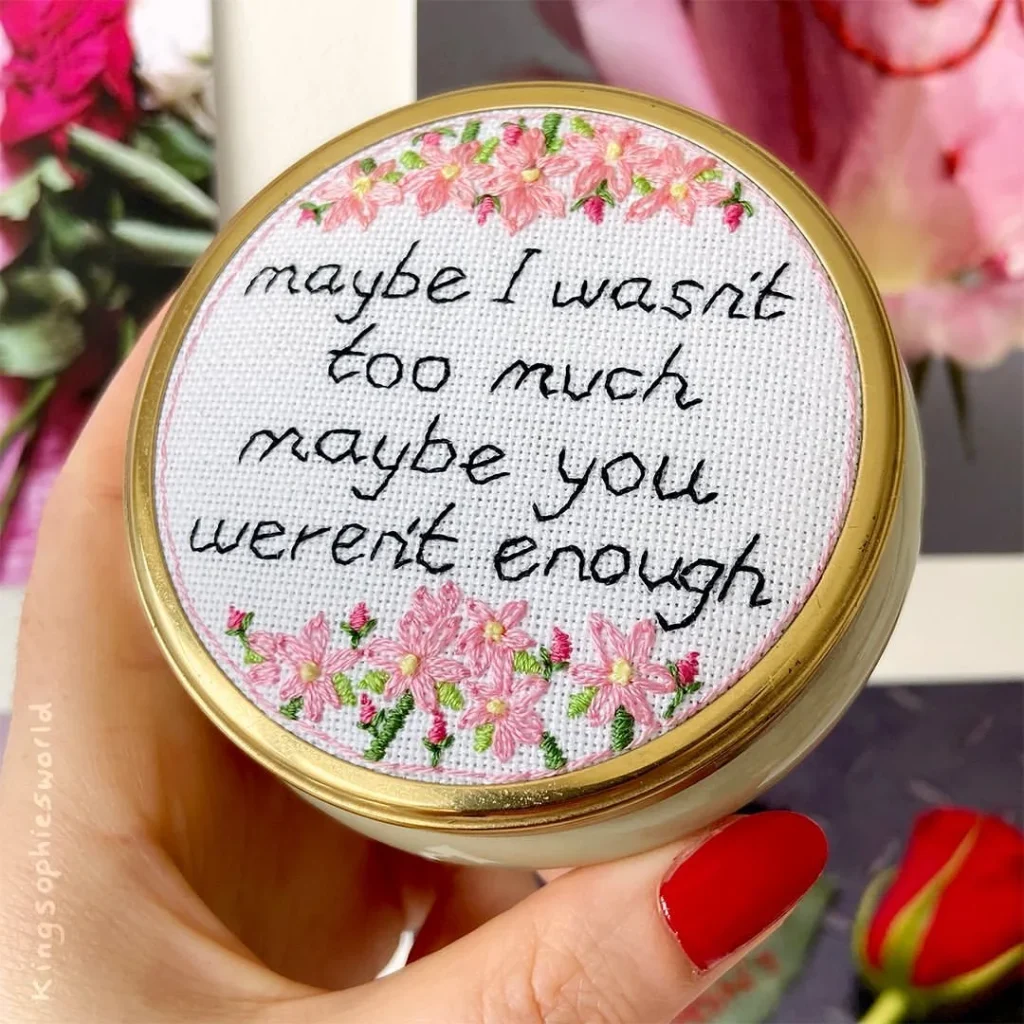
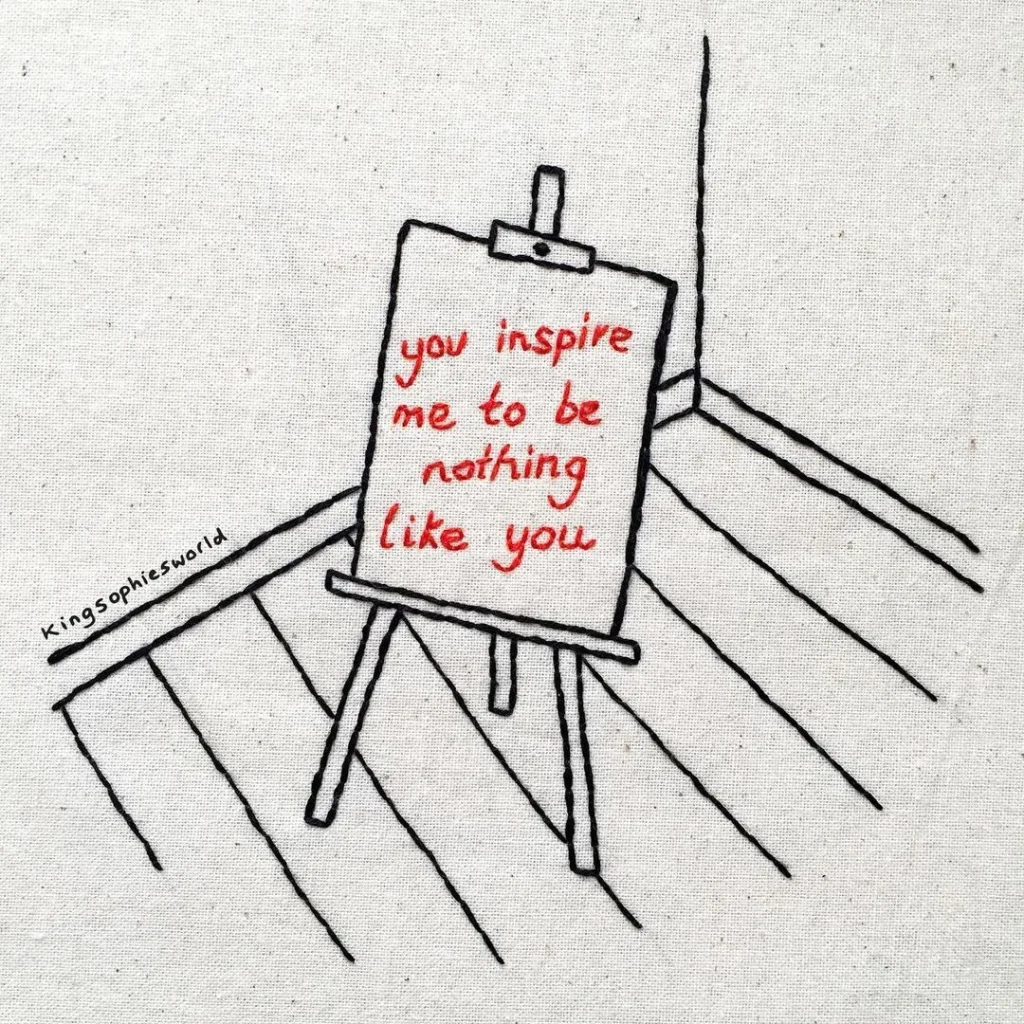
2. Joetta Maue
Joetta Maue is a renowned artist celebrated for her exploration of the profound and mundane elements of everyday life. Her work has garnered recognition both nationally and internationally, with exhibitions in prestigious museums and galleries across cities like New York, Los Angeles, San Francisco, London, and Tokyo, as well as at esteemed academic institutions including Harvard University and Tufts University.
Maue’s artistry is distinguished by her labour-intensive studio practices, which serve as a daily meditation on themes of intimacy, loneliness, joy, and sorrow. Her major bodies of work encompass intimate portrayals of relationships, the domestic sphere, and the psychological landscape of parenthood. Through meticulous exploration, Maue delves into the emotional depths of human connection, capturing the nuanced experiences of love, solitude, and womanhood. Maue’s work is renowned for its ability to invite contemplation and reflection, inviting audiences to explore the intricate tapestry of human and female emotions woven into the fabric of everyday existence.
Follow Joetta Maue
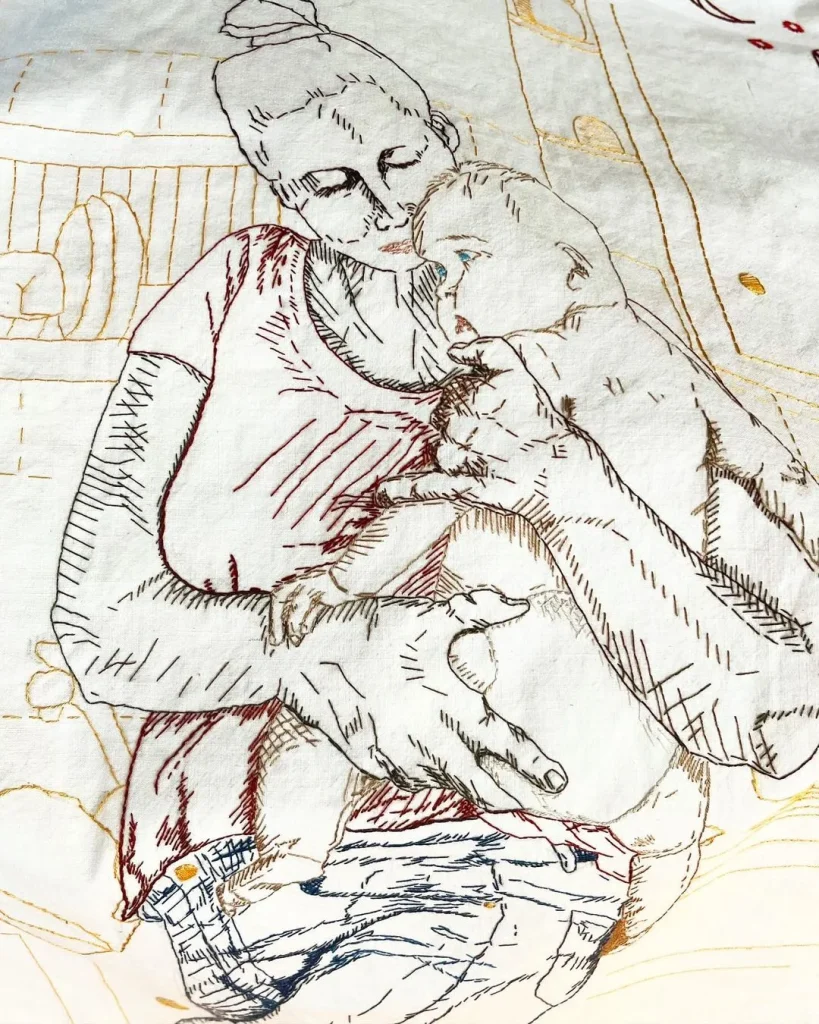
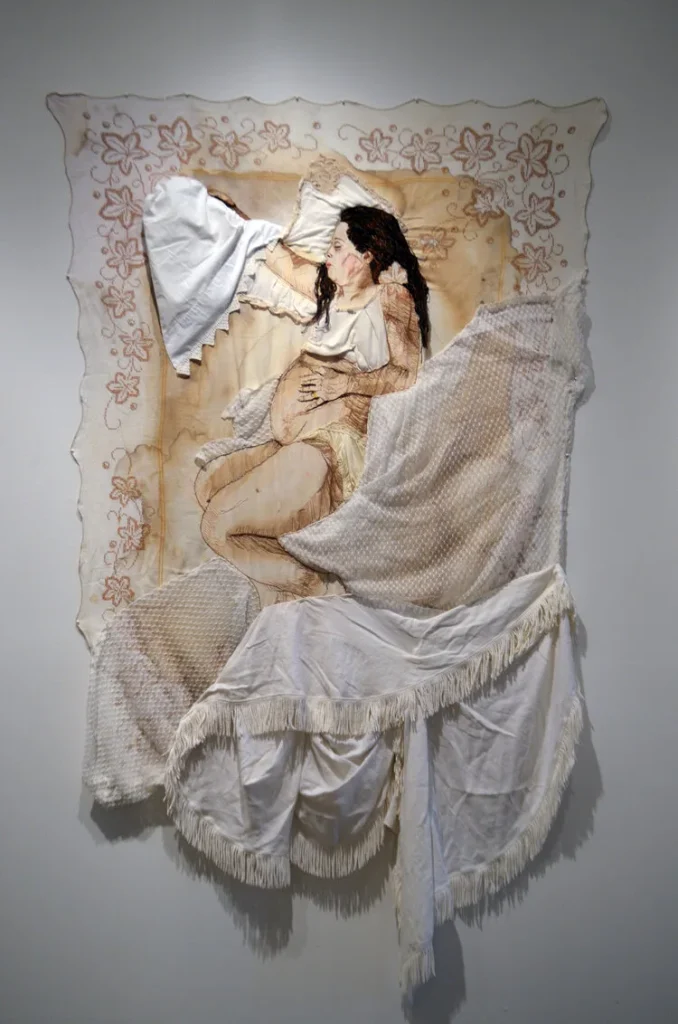
3. Lesley Wood
With a degree in fine art, UK mixed media artist Lesley Wood creates detailed and intricate pieces which have an appealing painterly feel. Wood’s work often explores themes related to femininity, empowerment, and the female experience. Through her embroidery, she both comments on and challenges societal norms and stereotypes surrounding women, offering a nuanced perspective that celebrates their diversity and strength.
Wood’s art not only celebrates the beauty and resilience of women but also addresses issues such as body image, identity, and societal expectations. By incorporating elements of storytelling into her work, she invites viewers to engage with her pieces on a deeper level, prompting conversations about the experiences and challenges faced by women in today’s world.
Overall, Lesley Wood’s embroidery serves as a powerful testament to the strength, resilience, and beauty of women, offering a space for reflection, dialogue, and celebration of womanhood in all its forms.
She is a member of the Society of Embroidered Work and N.A.N.E and her work has won several awards, including 1st prize winner of Hand & Lock Textile Art – Open in 2021 and the Madeira Threads competition in 2023. Over on her site you can view her series on Women, Domestic Series, Couples and Handkerchiefs.
Follow Lesley Wood
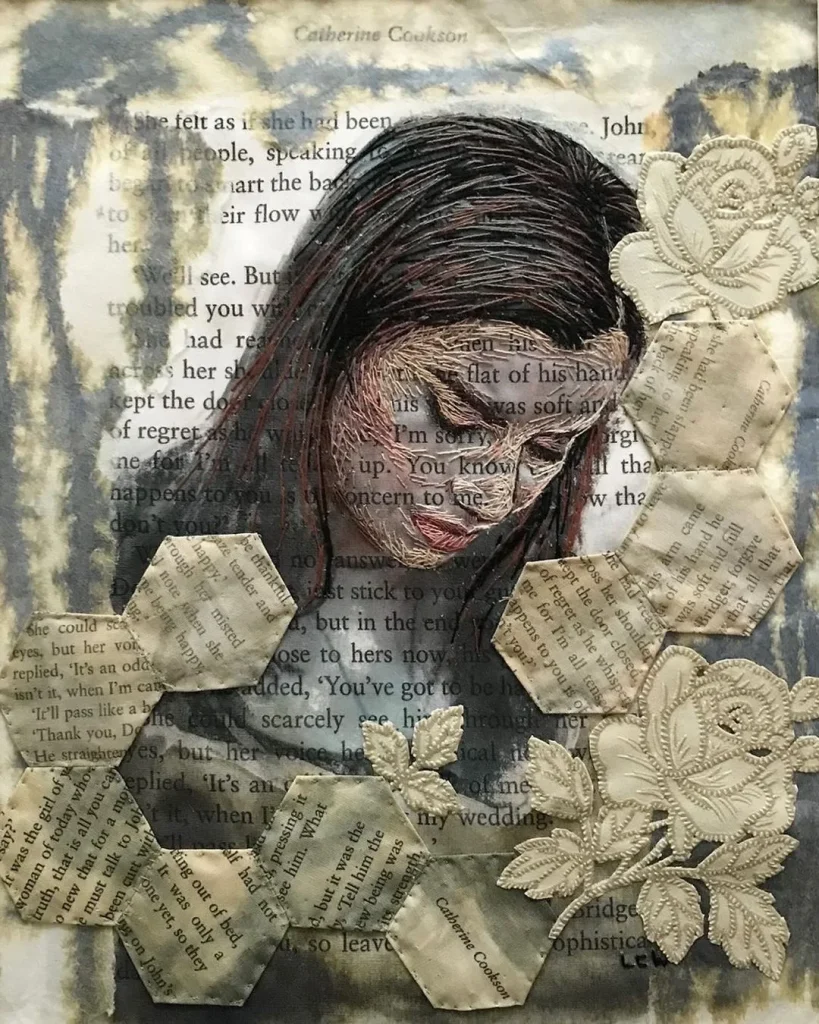
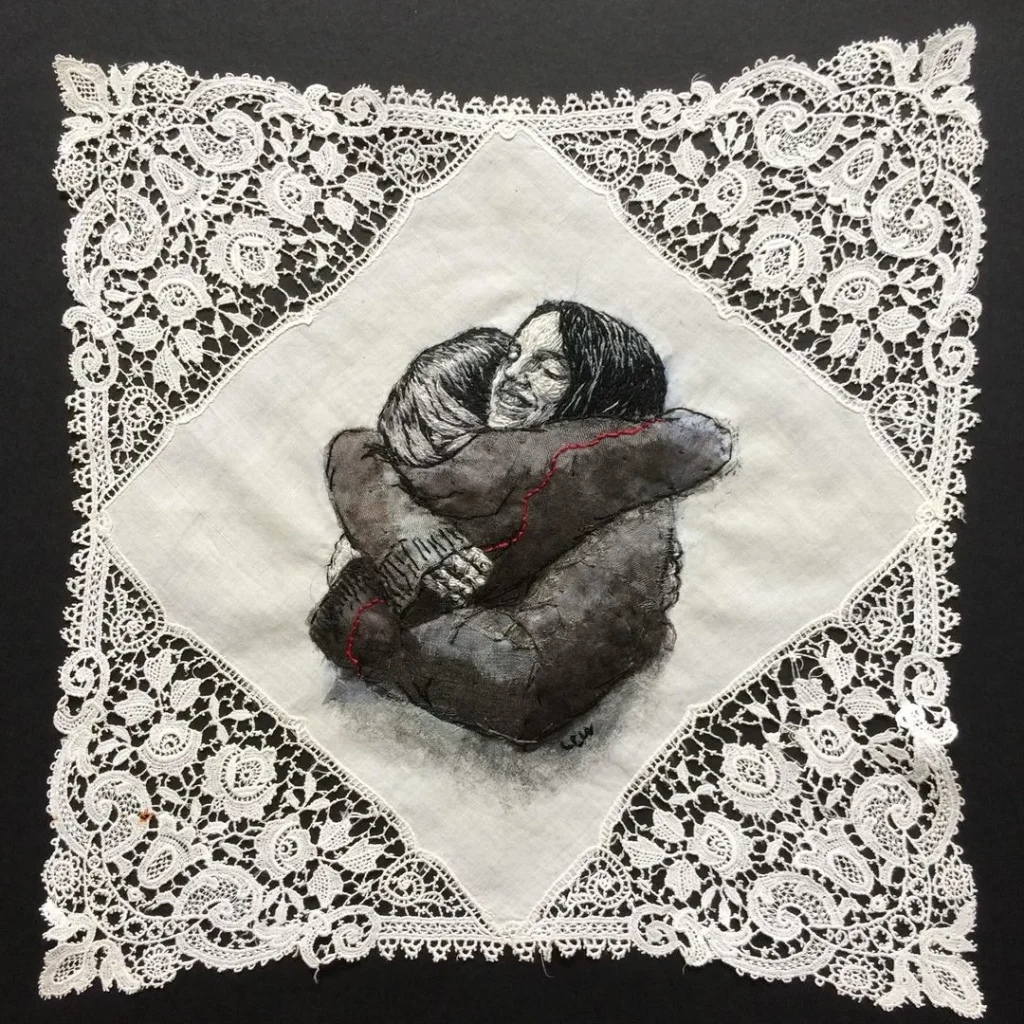
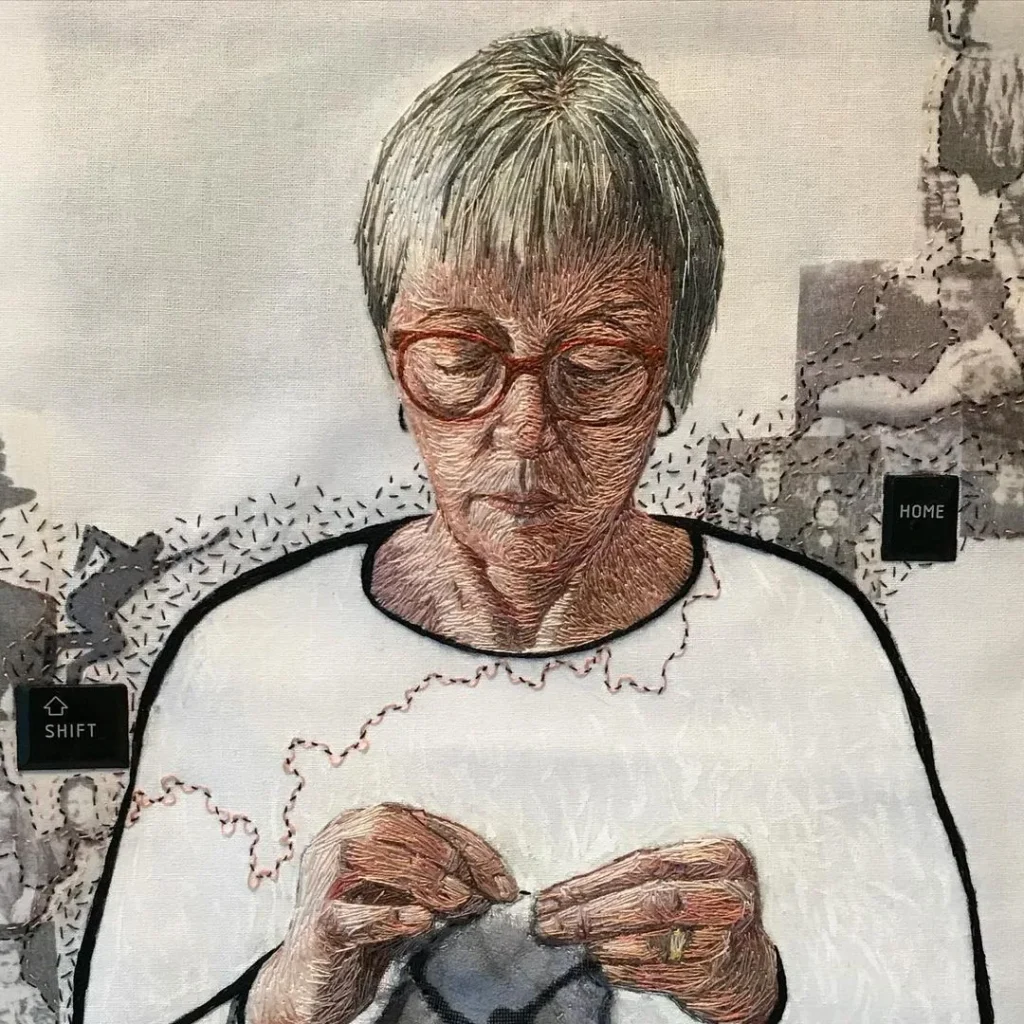
4. Marion Weymes
Marion Weymes is a self taught tapestry weaver and artists based in Dublin, Ireland. By exploring themes such as body positivity, self-acceptance, and sisterhood, she fosters a sense of connection and empowerment among women who encounter her art.
Her woven art tapestries are created on a tapestry loom and she views each individual piece as a unique opportunity to explore and experiment. Her notable pieces include a woven self portrait which is an “exploration of confidence after a couple of years of knocks”.
We love her exploration of the female form and her exciting use of colour to create abstract designs that are reminiscent of Matisse. Her accessible, contemporary style has helped her gain a huge following on Instagram.
Follow Marion Weymes
Instagram
https://www.marionweymes.com/
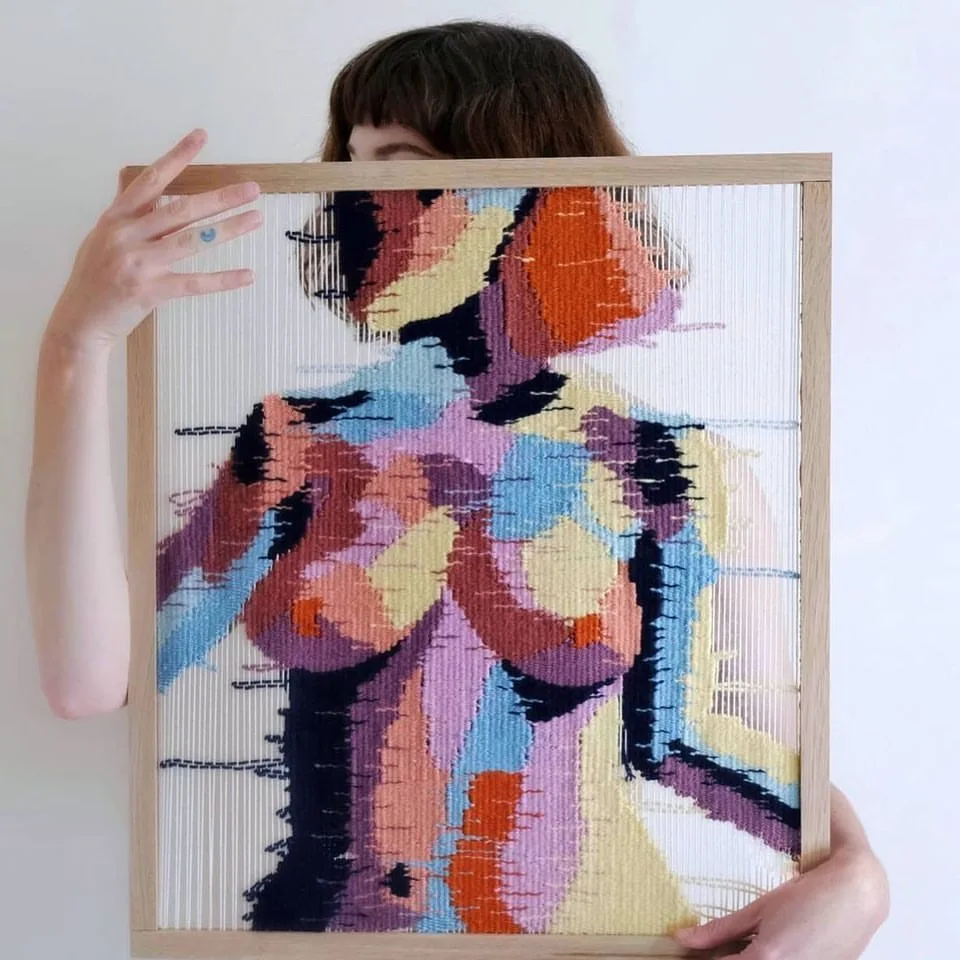
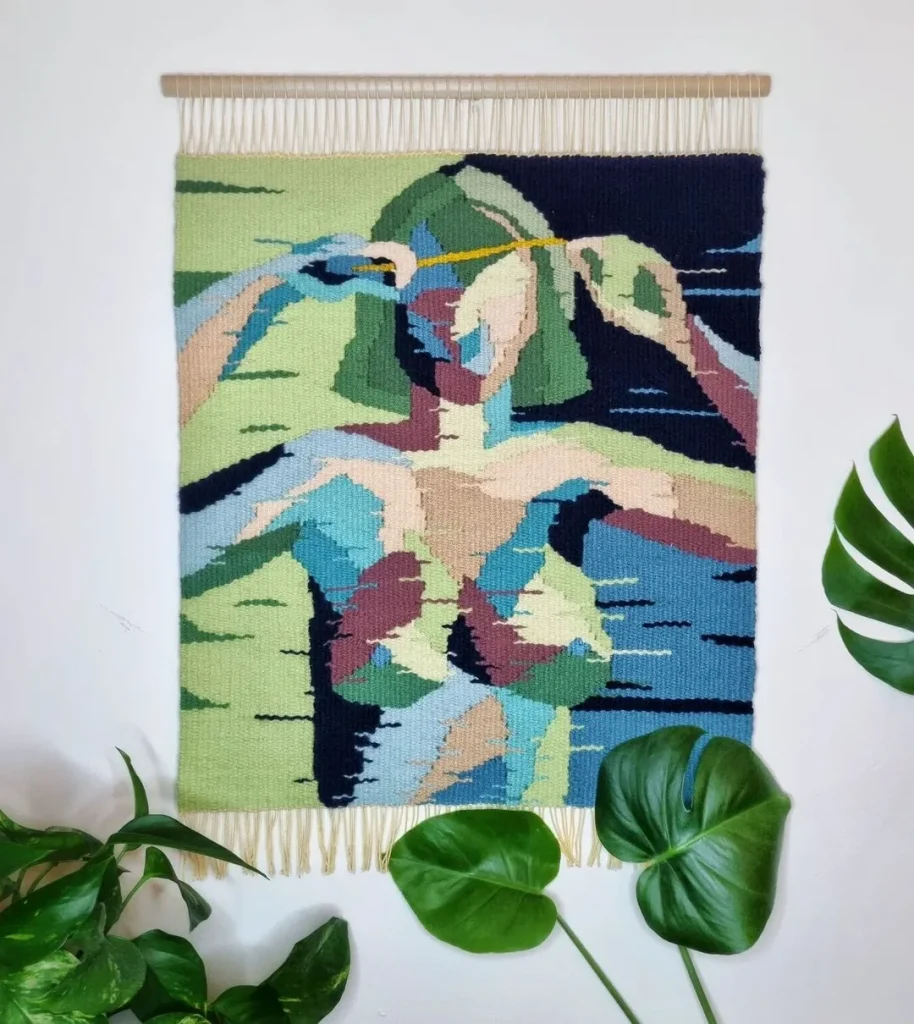
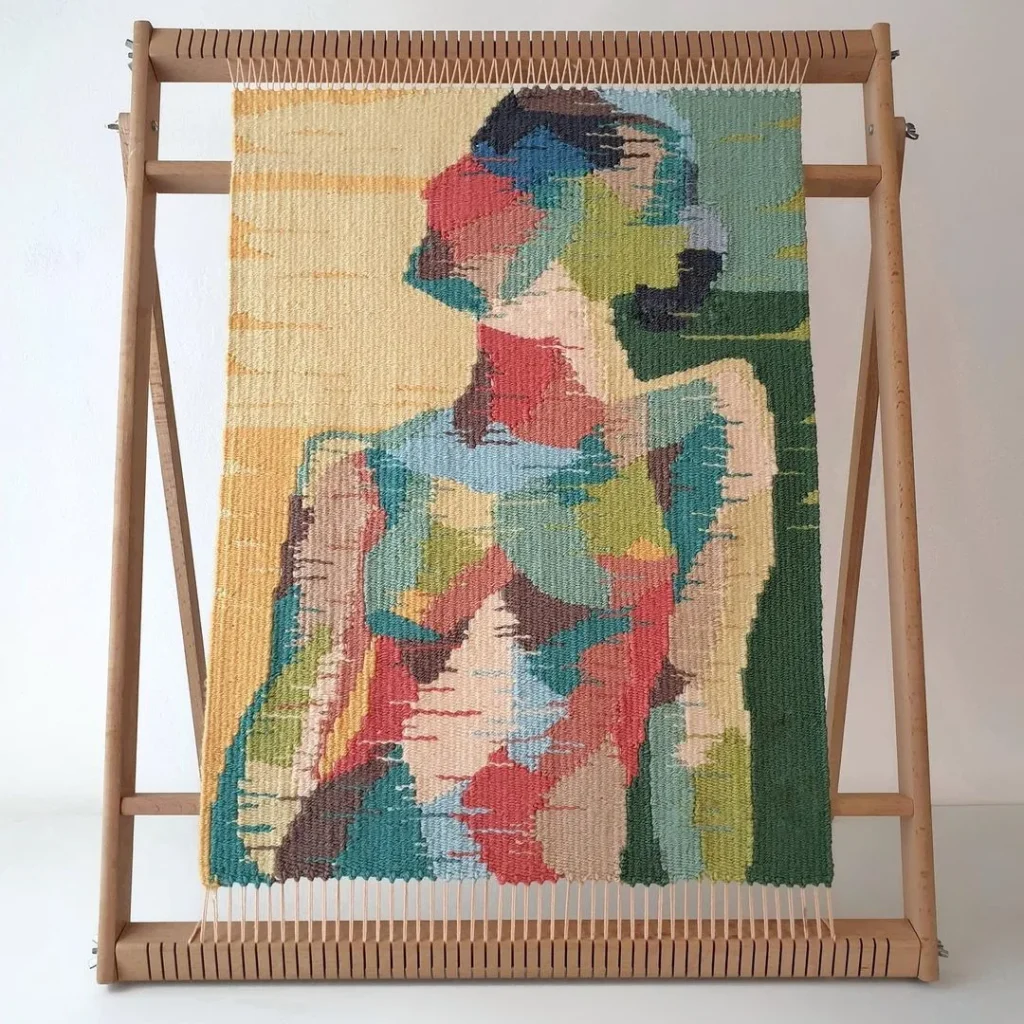
5. Utopian Fallopian
Nicki, also known as Utopian Fallopian, is an innovative non-binary textile artist from Glasgow.
Their distinctive body of work revolves around the transformative exploration of vulvas, reimagining them through various creative interpretations. Nicki’s portfolio serves as a vibrant celebration of femininity and joy, navigating sensitive subject matter with a remarkable sense of empowerment and positivity.
Drawing inspiration from a diverse array of artists, Nicki harnesses the power of social media platforms like Instagram to fuel their creative process. Embracing the versatility of embroidery, their favourite tool, Nicki crafts intricate and enduring pieces that resonate with authenticity and emotion.
Despite the intimate nature of their subject matter, Nicki’s work is celebrated for its ability to evoke a joyful response, inviting viewers to engage in a dialogue surrounding femininity, identity, and artistic expression. Their creative tip for fellow enthusiasts is to embrace curiosity and actively participate in the creative community, fostering connections and sparking inspiration.
Follow Nicki
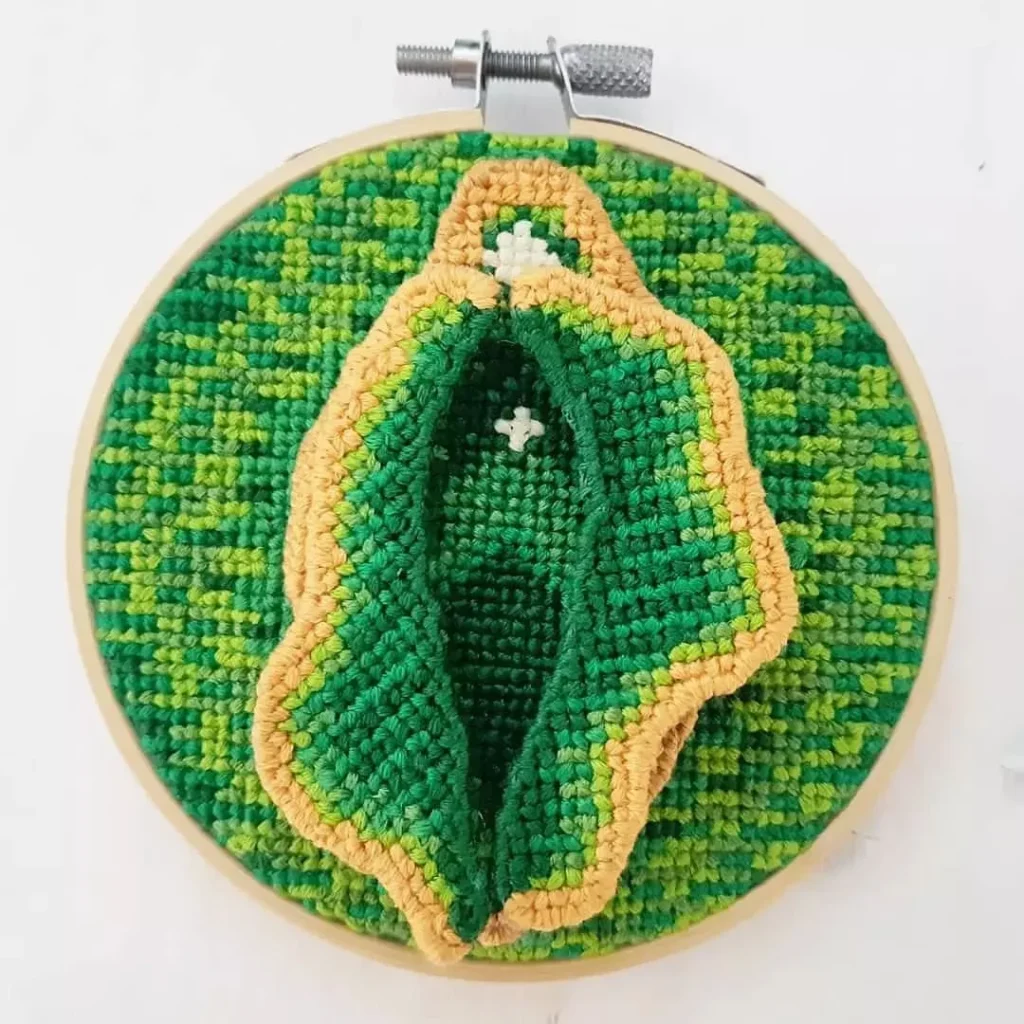
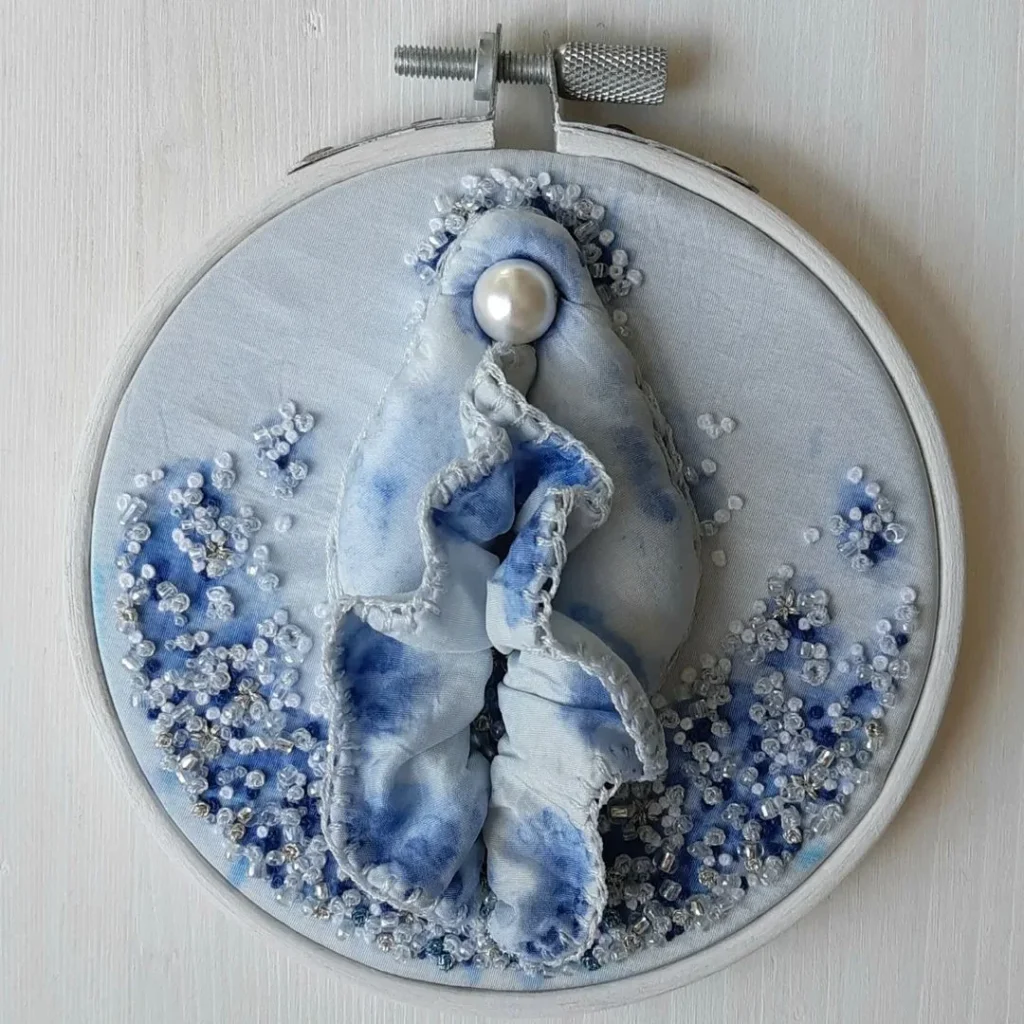
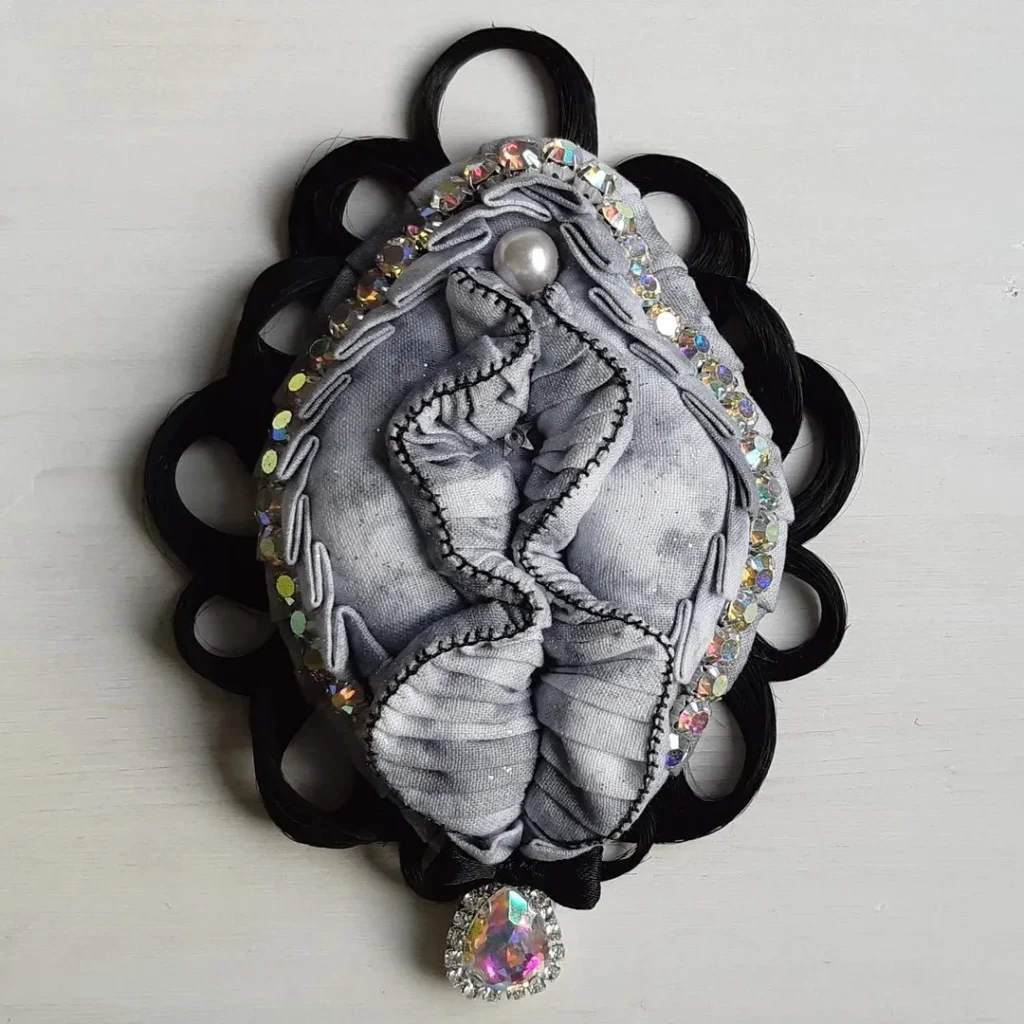
6. Anya Paintsil
Anya Paintsil, a talented artist based in the UK, distinguishes herself through her deeply personal and textile-rich practice, weaving together autobiographical narratives with influences from her Welsh and Ghanaian heritage and folk tales and mythology. Despite initially finding traditional art classes uninspiring, Anya’s passion for artistic expression was ignited at home, where she learned rug-making techniques from her grandmother.
Central to Anya’s artistic exploration is the integration of human hair into her work, forging connections between textile traditions and afro hairstyles. Drawing from a diverse array of influences, including West African masks, wood carvings, and Fante Asafo flags, her pieces resonate with a rich tapestry of cultural heritage and symbolism.
Though Anya’s textile works exude a sense of comfort reminiscent of rugs, they simultaneously provoke discomfort, rage, and confusion, challenging viewers to confront complex emotions and narratives. Inspired by childhood stories, personal anecdotes, and family legends, Anya delves into themes of race, gender and identity, inviting introspection and dialogue.
Beyond her creative endeavours, Anya is committed to challenging the marginalisation of artistic practices traditionally dominated by women, such as fibre arts and craft making. Her favourite self-portrait, “But I have promises to keep, and Miles to go before I sleep,” serves as a poignant reflection of the labour-intensive nature of her practice, embodying her unwavering dedication to her craft and culture.
Despite the physical demands of her work, Anya remains driven by her passion for storytelling and cultural exploration, continuing to push the boundaries of textile artistry while championing the voices of underrepresented creators. Through her art, she invites audiences to embark on a journey of introspection, empathy, and celebration of diversity.
Follow Anya Paintsil
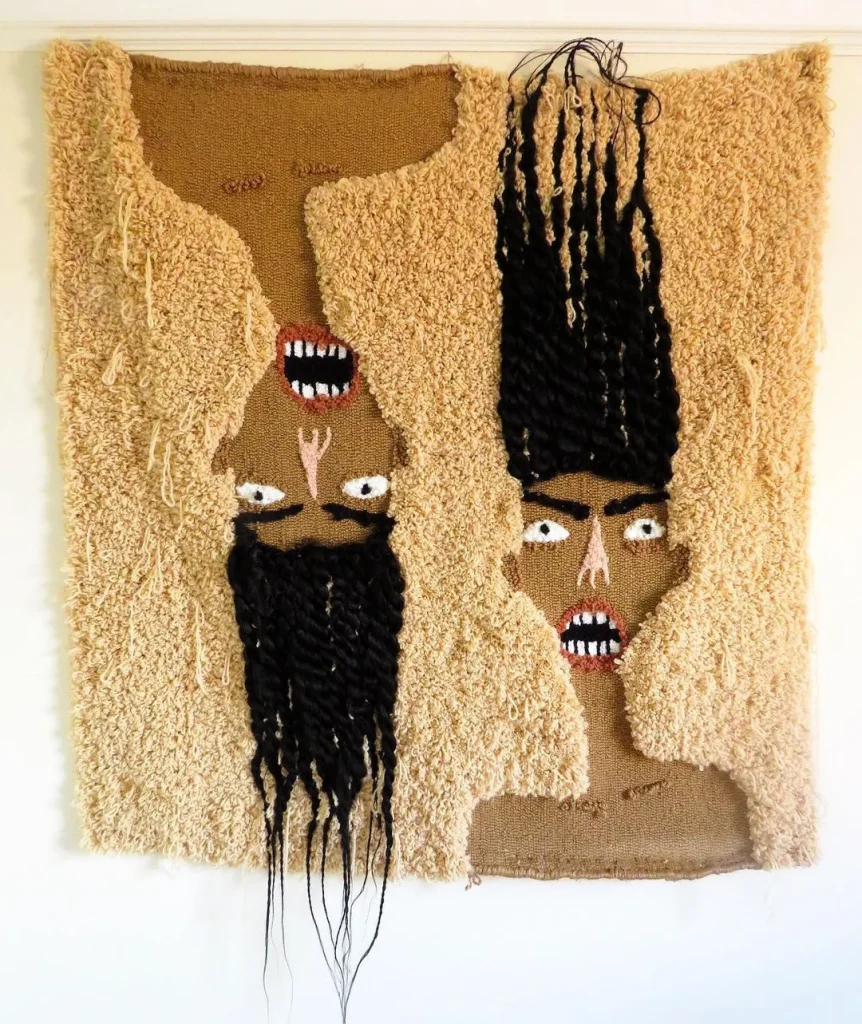
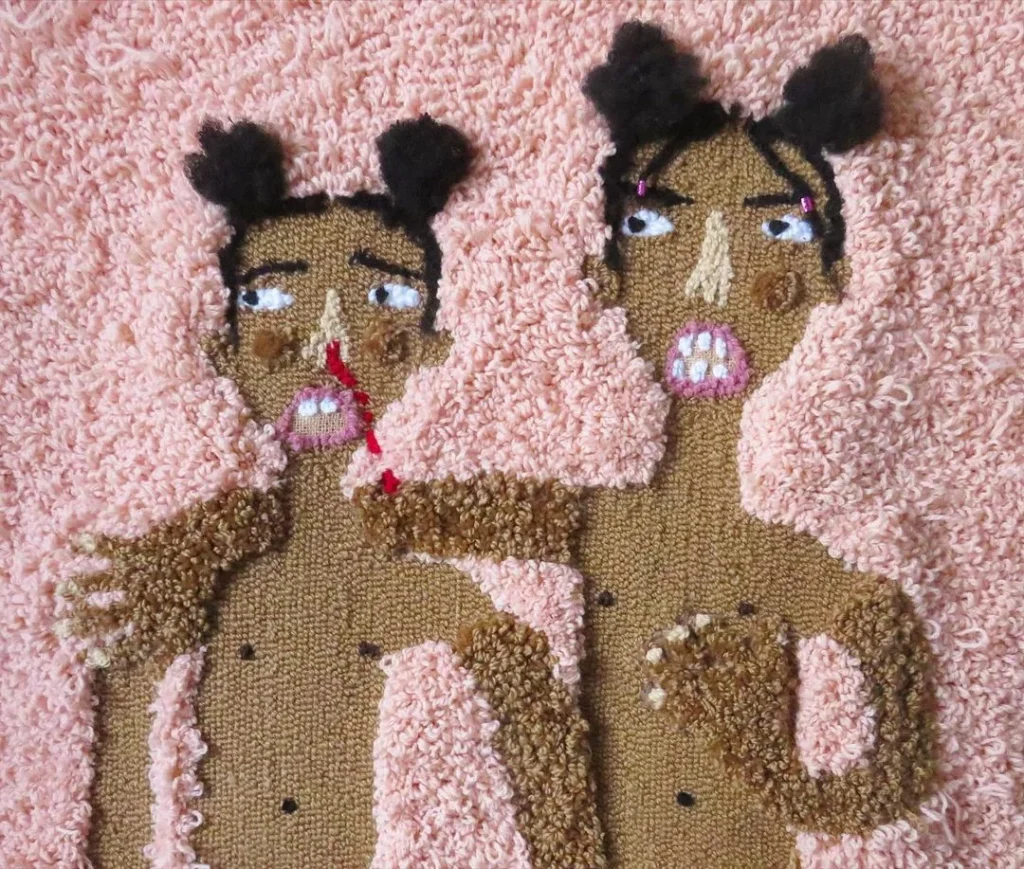
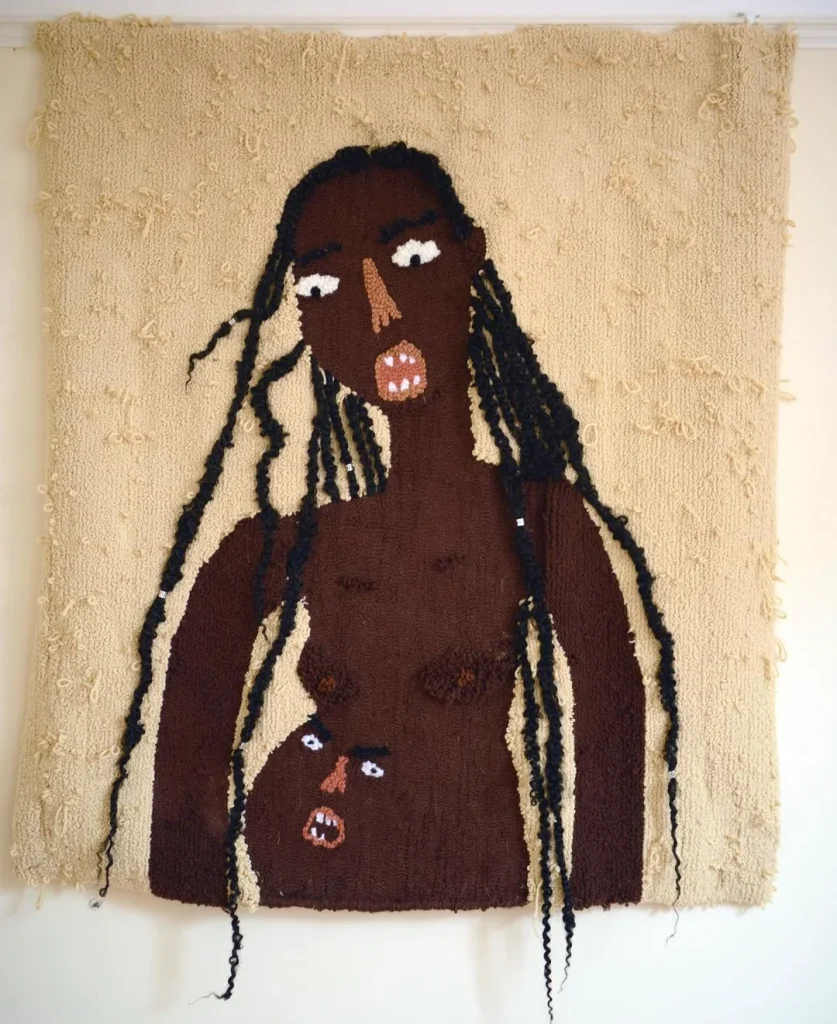
7. The Profanity Embroidery Group (PEG)
The Profanity Embroidery Group (PEG) emerged in 2014 as a pioneering community initiative founded by Annie Taylor and Wendy Robinson. Inspired by a humorous cartoon, the duo sought to carve out a safe and supportive space where individuals could channel their stress and emotions through the art of embroidery, particularly by stitching swear words. Based in Whitstable, UK, PEG convenes bi-monthly at a local pub, coming together to embark on various projects, notably the Quilt of Profanity.
The group serves as more than just a gathering of needleworkers; it’s a haven where members find solace and camaraderie amidst life’s challenges. Many join PEG as a means of coping with grief, navigating loneliness, or simply seeking an outlet for creative expression. Within this nurturing environment, individuals share skills, stories, and experiences, fostering a sense of belonging and mutual support.
At the heart of PEG’s mission lies the belief in the transformative power of embroidery as a therapeutic practice. Stitching swear words becomes not only an act of female defiance but also a cathartic release, providing an avenue for processing negative emotions and promoting mental well-being. Through peaceful activism, PEG boldly reclaims derogatory language, transforming it into empowering works of art that challenge societal norms and conventions. In embracing the intersection of craft, activism, and mental wellness, PEG stands as a beacon of empowerment, proving that stitches can indeed heal wounds and spark positive change.
Follow PEG
